The sponsored post with 57M views
I talked to Max Zavidow (aka @formerteenheartthrob) about making short films for the internet.
One month ago, I watched what was quite possibly the most engaging sponsored post I had ever seen. The soap company Dr. Squatch partnered with Max Zavidow (aka @formerteenheartthrob) and Alistair Ogden to make what can only be described as a David Lynch fever dream. To be fair, “sponsored post” feels like the wrong categorization here—it’s a two-minute short film, with an ad cleverly placed within it.
Across Instagram and TikTok, the video has over 57M views, 7.9M likes, and 835K shares. A comment with 88K likes reads, “I’m more impressed that they snuck an actual ad in there.” Same.
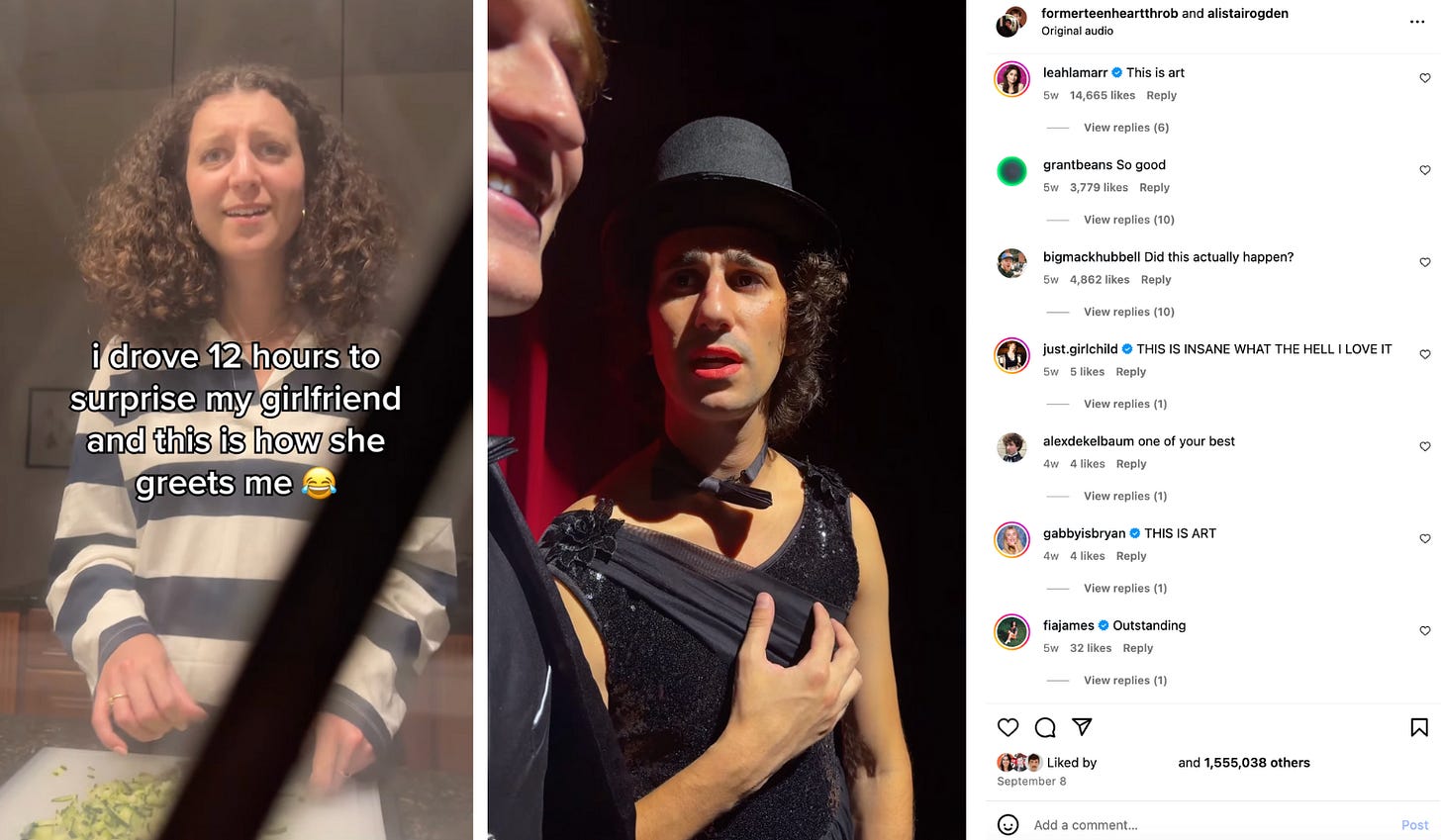
For today’s newsletter, I talked to Max about how he approaches making short films for the internet. His work embodies a lot of the topics I’ve been circling in recent newsletters—cinematic social, “high effort, low stakes”, and quality over quantity. Like I’ve mentioned before, Craighill and Little Joy, two brands that have achieved enormous social growth this year, both referenced studying creators in their interviews with me. Learning about Max’s process has already unlocked ideas for the accounts that I work on. I hope it does for you too.
If you enjoy free newsletters like this one, you can upgrade to a paid Link in Bio subscription. Along with weekly strategy newsletters and quarterly trend reports, you’ll get access to the very active Discord community. One member shared, “The Link in Bio Discord has easily become one of the best tools to have in my arsenal working on social each and every day. It’s so rare to find such a connected community that just GETS it and will answer any and all questions at any hour of the day.”
It might even be an educational expense at your company! Here’s a template for you to use when asking.
Rachel Karten: I’m curious how you would describe the style of videos you make?
Max Zavidow: I describe my videos as “really short films”. Essentially, my work is narrative fiction in the 2-4 minute range. Growing up, the work I was most moved by was narrative fiction. And not just narrative fiction, but specifically things that left me in shock and awe. So when I create, I want to put out work that I myself want to see.
I also always set out to create work for the internet that treats digital media not like a platform, but a medium. A video of mine is less so supposed to be a demonstration of my writing abilities or directing abilities so that someone will let me make a movie or a TV show. It’s supposed to be a video for the place we are—the internet.
RK: I talk a lot about “high effort, low stakes” content and how viewers really love seeing that effort. What does the planning process look like for one of your videos?
MZ: A really short film generally takes about 6 weeks to make based on my current infrastructure. 2 weeks of writing, 10 days of preproduction, 4 days of shooting, and 2 weeks for editing and feedback. Preproduction for a video of mine will generally consist of casting, location scouting, prop procurement, getting food and caffeine for the shoot, and scheduling out the shoot down to the minute.
RK: A lot of the brands that are succeeding right now are paying a lot of attention to their hooks. How do you think about the first few seconds of your videos?
MZ: For myself, the best hooks are ones which promise the audience something they want to see. For example, in my last video, the text on screen at the beginning of the video said “I drove 12 hours to see my girlfriend and this is how she greets me 😂”. A hook like this is great because it is native to the platform (i.e. it feels like something the viewer has seen before so they are comfortable watching at the outset) and promises them something unknown (the reaction from my girlfriend). Between the familiarity and promise of the premise, you can draw in a viewer to stick around.
From a narrative perspective, this gives you the ultimate leverage to flip the entire thing on its head. But because of the way the video starts, the audience will lend you their time and patience to go somewhere unfamiliar.
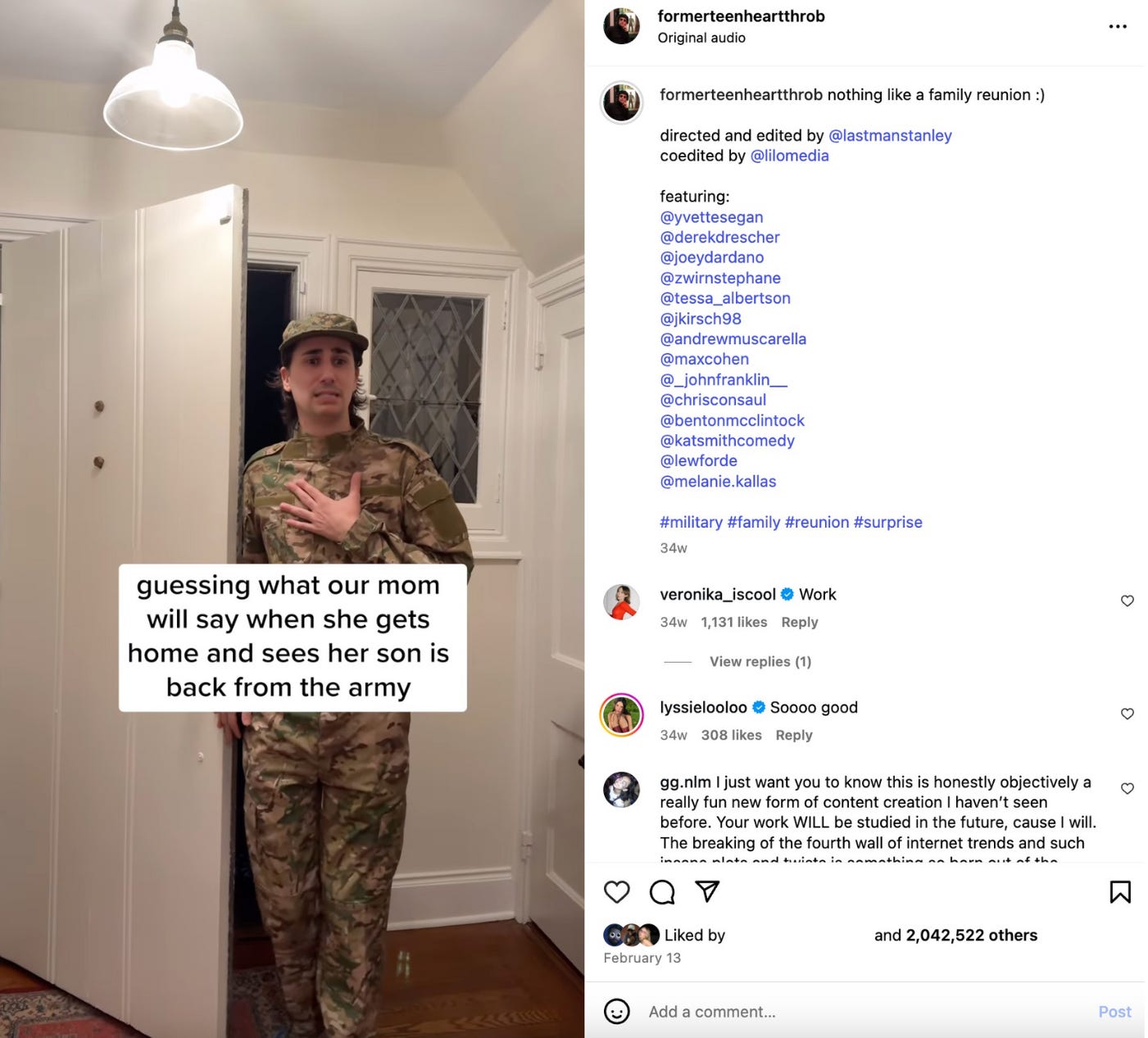
RK: That’s exactly what I love about your videos. You find a familiar way in (usually an internet trend) and then twist and subvert it into something totally unexpected. I’m curious how you think about keeping an audience engaged throughout a video?
MZ: It’s less so about keeping the audience engaged and more so about making what I would want to watch. While I’m writing or editing, if I feel there is a place where the story lags or doesn’t hit like I thought it would, the audience would probably feel the same way. If I can make something I am proud of and enjoy watching, I trust the audience will follow suit.
RK: I’m sure social posts from brands come across your FYP. What’s something you think brands could learn from creators when it comes to building an engaging social presence?
MZ: I think people want their brands to feel less personal and relatable and more like a show and a spectacle. Generally, people don’t want to interface with brands on their own time, but if a brand creates something so evocative, the viewer can’t help but look, not only has the brand successfully engaged with the consumer, but they’ve also shown the viewer respect by saying “hey, we know you’re smart and we won’t waste your time—we’ll earn it.”
RK: I know you also work with brands on sponsored content. The ad you did for Dr. Squatch got over 57M views across platforms. Can you walk me through what that brainstorm and pitch process looked like?
MZ: That ad came about because Dr. Squatch reached out to a writing partner of mine, Alistair Ogden, to do a standard brand deal. Alistair told them he wanted to instead make a really short film with me and they were on board. Because the concept of a really short film was so foreign to the brand, they really put a lot of trust in Alistair and myself to deliver a product they would be happy with. Alistair and I essentially sent them the script, Squatch sent some genuinely helpful feedback. Then we shot the video and edited it, sent it to Squatch, they had a few notes and we went live.
I think it is sometimes hard to visualize what a video from Alistair and myself will look like just from a script, so it was a real privilege to work with a company that let us run free. Now, Alistair and I have a great proof of concept in hand so when we work with other brands, they won’t just need to just take our word for how great the product is—they can see for themselves.
RK: Are you able to share any of the analytics from the video?
MZ: On TikTok, 99% of viewers were non-followers and the average watch rate past the first 3 seconds was 63%.
RK: What analytics do you track closely? Are there things you “optimize” for?
MZ: From a personal interest perspective, the analytics I track the most closely are new followers, comments, and shares. I find those to be good metrics of how much someone is moved by a video. Do they want to see more? Do they have thoughts? Do they want their friends to see it so they can discuss? None of those metrics are necessarily things I optimize for—I believe a genuinely good video will do what it deserves to do—but they are numbers I am more curious about.
RK: In the comments you said you shot the ad on an iPhone but through a “black magic app”. Can you tell me more?
MZ: Yes! The app is literally named “Blackmagic Cam”. Blackmagic is an Australian company that develops digital cinema technology and manufactures professional video production hardware and software. Their app allows you to access their technology and integrate it with the iPhone, so you can up the quality of your video from the comfort of your own phone.
RK: Is there a brand you’d love to work with?
MZ: I’d love to work with any brand that is down to let me make a really short film in its truest form. I’d love to work with Taco Bell, North Face, Ramp, Cava, Totinos, Axe, Poppi. To me, those are brands where I both love the product and know they understand the internet, spectacle, and have a demonstrated past of allowing creators to make the best video possible.
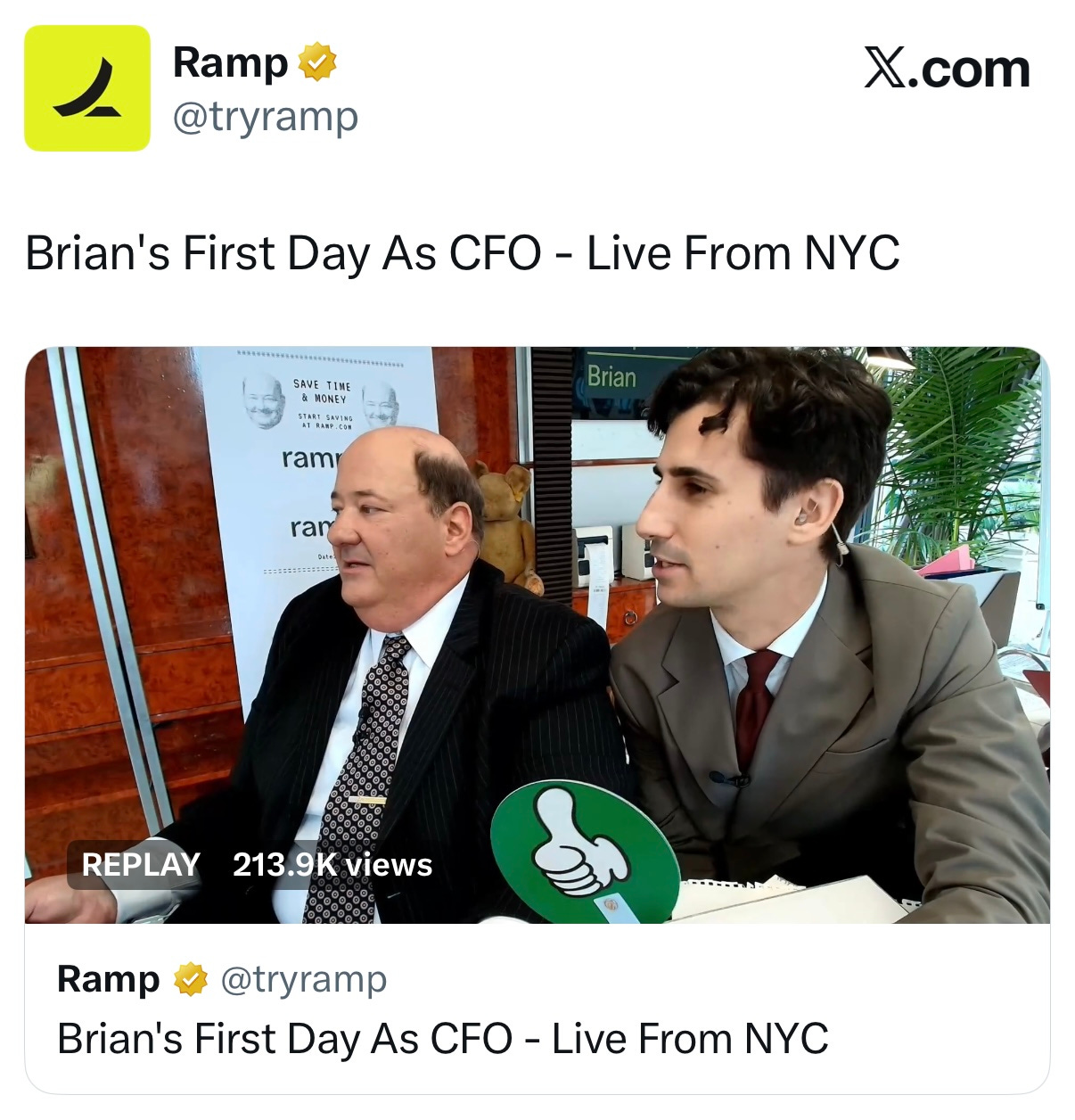
RK: Finally, I’ve seen a few comments that compare you to David Lynch. Is he an inspiration at all?
I think David Lynch is an inspiration, not in the sense that I consciously reference his work when I create, but more in the sense that his influence is so prolific and pervasive it inevitably seeps in.
Day to day, I’m thinking more about the Coen Brothers, Martin McDonagh, Charlie Kaufman, Gary Gulman, Mike Birbiglia, and Kurt Vonnegut. I like to imagine what they’d make if they came up on the internet, and that’s the space I try to occupy.
Hat tip to The Publish Press for the interview that inspired this interview!
Finally, there are new jobs on the Link in Bio Job Board. Like Senior Social Media Strategist at Botanic Tonics, Social Media Content Specialist at Shake Shack, and Social Creator at Sol de Janeiro.



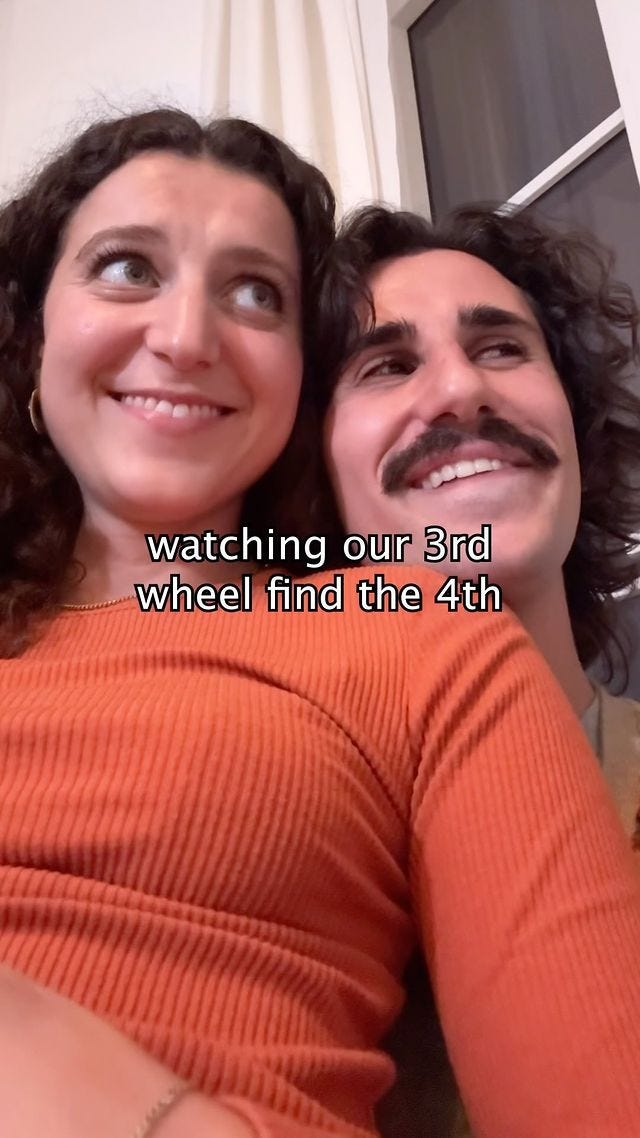
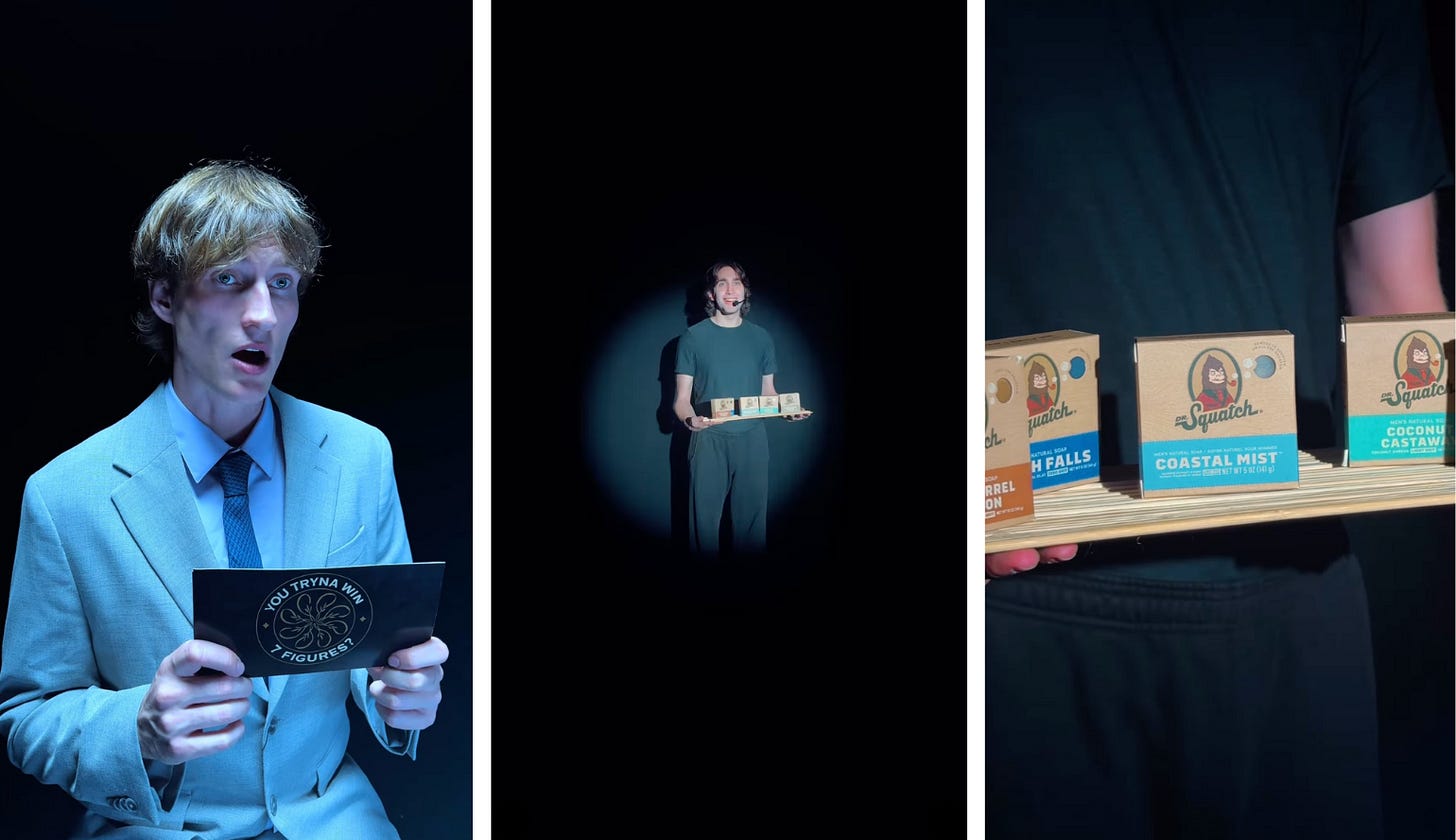
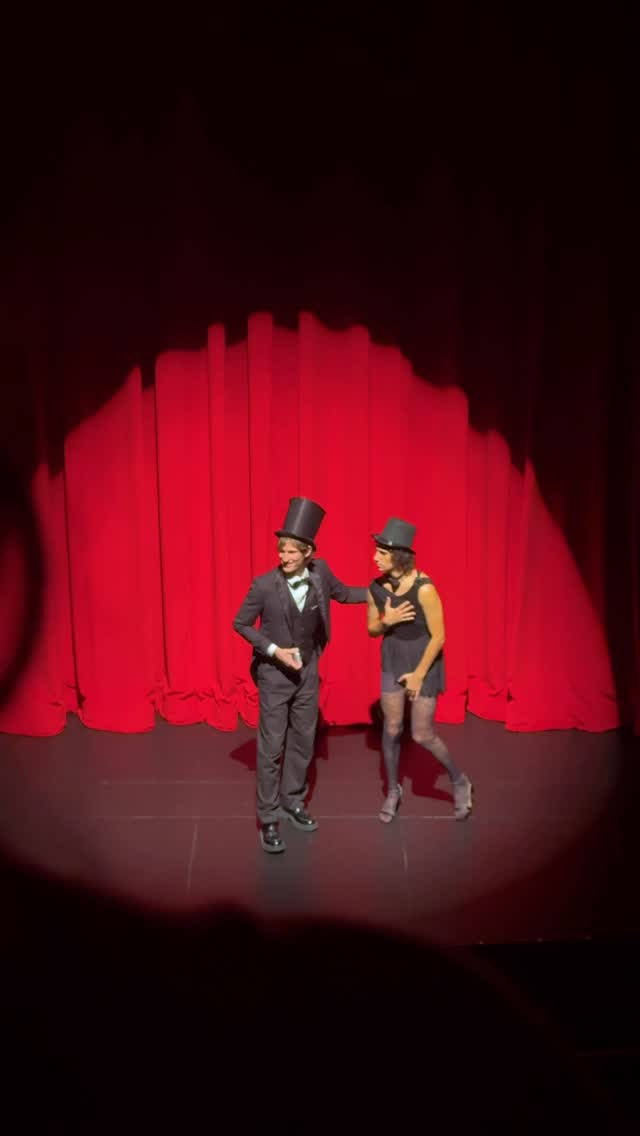
This is absolute gold. I love the pure native hook that leads into something more cinematic. Brings you in before it gets too whimsical